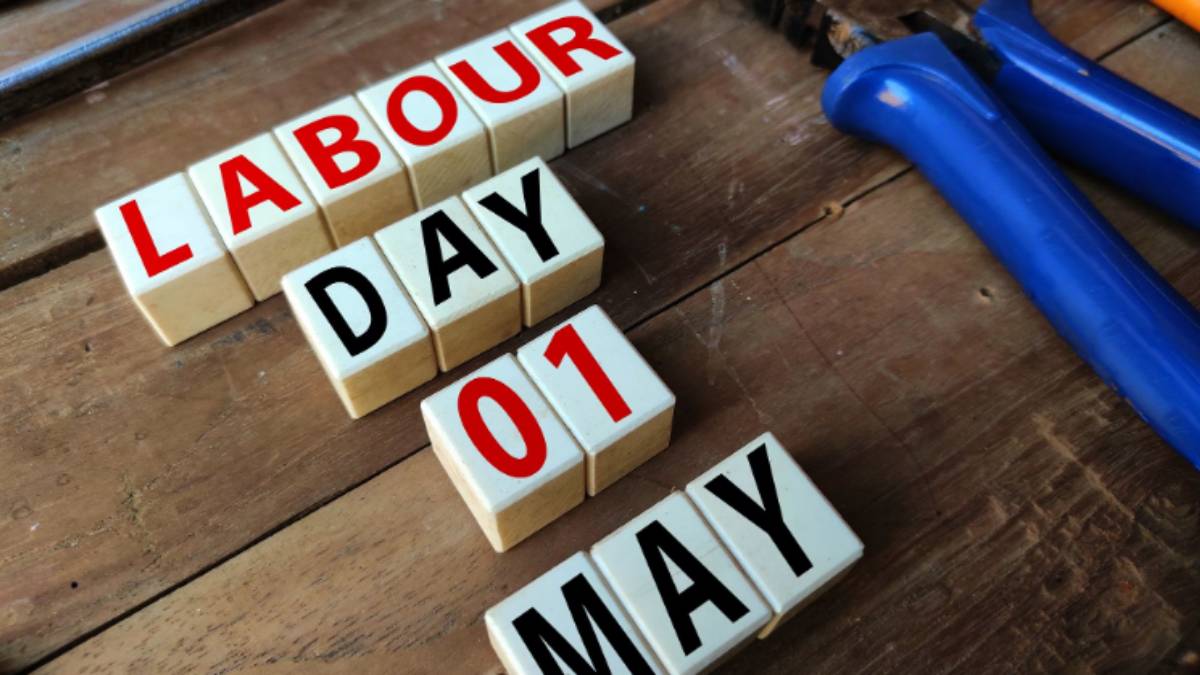“A Brief History of May Day and Its Relevance Today”

I. Introduction
Definition of May Day as a celebration and labor holiday
May Day is an intriguing celebration and a significant labor holiday that has been commemorated for centuries. This date marks the beginning of the summer season and is celebrated on May 1st in many countries around the world. Originally, it was a festival to welcome the arrival of spring, but as time went on, it became associated with labor rights and workers’ struggles. The day remembers the historical movement of workers who fought for eight-hour working days, better wages, and safe working conditions. Nowadays, May Day commemorations feature parades, rallies, and numerous cultural festivities to recognize workers’ rights and to promote social justice. This celebration holds a profound significance in protests and rallies worldwide, and it is a day to acknowledge the contributions of workers, reminding us of the importance of fair workers’ rights.
Brief overview of May Day’s origins
May Day, also known as International Workers’ Day, is a celebration that originated in Chicago in 1886 when labor unions called for a general strike to demand an eight-hour workday. The strike turned violent, resulting in the infamous Haymarket Square riot that left several workers and police officers dead. Despite the violence, the movement continued and eventually led to the adoption of the eight-hour workday in many countries around the world. Today, May Day is recognized as a time to honor workers’ rights and the victories they have achieved in the fight for fair working conditions.
II. Historical Origins of May Day
May Day has a rich historical background that dates back to the late 19th century. This day is known as International Workers Day, and was first celebrated in 1886 in Chicago, Illinois, USA. It was established as an annual event to promote the rights of workers and to commemorate the Haymarket affair where labor protests turned violent. The day was later recognized as a public holiday in many countries worldwide. Today, May Day is celebrated as a symbol of the labor movement and a celebration of the achievements of workers around the globe.
Pre-Christian celebrations of spring
Before Christianity, people celebrated the season of spring in a variety of ways. These celebrations were often tied to the changing seasons and the renewal of life in nature. People would hold festivals, dances and feasts to mark the beginning of the growing season, and to celebrate the return of the sun after the long, dark winter. Some of the most common pre-Christian celebrations of spring were centered on agricultural themes, with people offering prayers and sacrifices to the gods of fertility and abundance. Other traditions included the lighting of bonfires, the decorating of homes with flowers and greenery and the exchanging of gifts. Despite their diverse customs, these early cultures all shared a common appreciation for the natural world and the cyclical nature of life.
May Day as a socialist and labor holiday
May Day is a holiday that, while often overlooked or misunderstood, holds great significance for socialists, laborers, and working people around the world. Originating from labor movements in the late 19th century, May Day is celebrated on May 1st as an opportunity to recognize and advocate for the rights and needs of workers everywhere. As a day that honors those who have fought for better wages, reasonable work hours, and other vital protections for the working class, May Day remains an important moment to reflect on what progress we’ve made and what is still ahead. It’s a time to come together in solidarity and stand up for the value and dignity of hard work and the people who make it all possible.
Haymarket affair and the origins of International Workers’ Day
The Haymarket Affair is a significant event in the history of the labor movement, and it is the reason why May 1st is known as International Workers’ Day. In 1886, workers in Chicago’s Haymarket Square held a rally demanding an eight-hour workday. However, the peaceful protest turned violent when someone threw a bomb, killing several police officers and protesters. Eight anarchist leaders were arrested and later convicted despite a lack of evidence linking them to the bombing. This event sparked outrage and inspired the creation of International Workers’ Day as a global day of solidarity for workers everywhere.
III. May Day Celebrations Today
Today, people all around the world are celebrating May Day! This special day is dedicated to honoring the contributions and achievements of workers across different fields. From labor unions to political demonstrations, May Day has long been associated with a variety of social movements that have sought to improve the lives of working people. Whether you’re attending a parade or participating in a protest, May Day is a time to come together and celebrate the power of collective action. So let’s raise our voices in solidarity and demand a better future for all workers!
Continued importance of May Day to labor and socialist movements
Throughout history, May Day has held immense importance to labor and socialist movements. Even in the present day, this commemoration continues to hold significant relevance. For activists and workers alike, May Day is a time to stand up for their rights while simultaneously celebrating the struggles and achievements of these important movements. Joining together, protestors use their collective power to make their voices heard and bring attention to the issues affecting labor workers worldwide. Despite the many challenges faced by these movements, May Day remains a beacon of hope and inspiration for all those who seek to create a more just and equitable world.
Establishment of May Day as a public holiday in many countries
May Day has become more than just a celebration of spring and flowers. In fact, it has become an international public holiday in many countries. This day pays tribute to the working class and their hard-fought struggles for better working conditions and workers’ rights. With origins dating back over a century, May Day is now recognized as a significant day for social and political movements across the globe. From workers’ rallies to political protests, May Day has become a symbol for the injustices and struggles faced by the working class. Join the celebration this May Day and pay respects to the unsung heroes who have paved the way for better working conditions and workers’ rights.
Adaptation of May Day celebrations to local contexts and issues
May Day celebrations, originally a traditional holiday in Western Europe, have evolved over time and spread worldwide. This annual observance on the first of May is a tribute to the labor movement and the achievements of workers worldwide. As cultures and beliefs vary from region to region, communities have decided to adapt and personalize activities to suit their particular needs and address social issues unique to their area. From parades and protests to concerts and gatherings, May Day celebrations have become a diverse and inclusive platform for communities to come together, celebrate their achievements, and advocate for a better future.
IV. Contemporary Relevance of May Day
May Day has a contemporary relevance that often goes unnoticed. This day, which falls on May 1st each year, has a rich history in labor and socialist movements. It began as a celebration of workers’ rights, with the intent of achieving an eight-hour workday. However, in recent years, May Day has also been used as a platform for activism, protests, and demonstrations. The day has become a symbol of resistance against social and economic injustices, such as poverty, inequality, and exploitation of labor. Despite the challenges that the labor movement faces today, May Day continues to serve as a reminder of the ongoing fight for workers’ rights and better economic conditions for all.
Ongoing struggles for workers’ rights and economic justice
As we delve into the current social climate, it is clear that the fight for workers’ rights and economic justice is an ever-evolving struggle. Despite the many challenges that stand in their way, individuals and groups alike are determined to push for a fairer and more equitable system – one where everyone, regardless of socio-economic status, has the opportunity to thrive. From the streets to the boardroom, the call for change is echoed loudly and proudly, with advocates working tirelessly to ensure that their voices are heard. So if you’re ready to take a stand alongside these brave individuals and join in the fight for economic justice and workers’ rights, then there’s never been a better time to get involved.
Relationship between May Day and other movements for social change
May Day, also known as International Workers’ Day, has connections to various movements for social change throughout history. The holiday originated in the late 19th century as a celebration of the labor movement and workers’ rights. It was later adopted by socialist and communist groups as a day to advocate for the overthrow of the capitalist system. Today, May Day is still recognized as a day to commemorate workers’ rights and mobilize for social justice causes. Despite controversy and government opposition, May Day remains an important date in the calendar of social movements worldwide.
Challenges to May Day celebrations and how they can be addressed
May Day celebrations have long been a cherished tradition across the world, but in recent years, various challenges have emerged that threaten to dampen the festivities. These challenges range from negative attitudes towards the holiday to logistical difficulties in organizing events. However, there are various strategies that could be employed to address these challenges and ensure that May Day celebrations continue to thrive. By engaging with the community, promoting the historical and cultural significance of the holiday, and utilizing technology to enhance communication and organization, May Day celebrations can overcome these obstacles and remain a vibrant and important part of our collective heritage.
V. Conclusion
May Day, also known as Labor Day or International Workers’ Day, is celebrated on May 1 to honor the hard work and contributions of laborers around the world. This day has its roots in the labor movements of the late 19th century and is now observed in over 80 countries across the globe. The history and significance of May Day vary from country to country, but its main purpose remains the same – to appreciate the contributions of working-class people and encourage social solidarity. In many places, May Day is celebrated with parades, rallies, and speeches by labor leaders and politicians. This day not only marks the importance of the labor force but also serves as a reminder of the struggles and sacrifices that workers have made to achieve their rights and dignity. As we celebrate May Day, let’s recognize and honor the hard work and dedication of the working-class people and strive to create a world that is fair, just, and equitable for all.
Reflection on the continued importance of May Day as a symbol of resistance and solidarity
As we take a moment to reflect on the continued significance of May Day, it’s clear that it remains a potent symbol of resistance and solidarity. Originally commemorated as a day to celebrate workers’ rights and the fight for an eight-hour workday, May Day has since become a rallying cry for activists around the world who seek to advance the interests of the working class and push back against the forces of oppression and exploitation. From mass demonstrations to strikes to direct action campaigns, May Day offers a powerful platform for those who refuse to accept the status quo and are willing to fight for a better, more equitable future. As we mark this occasion, let us recommit ourselves to the struggle for justice and equality, and honor the sacrifices of those who have come before us in this ongoing struggle.
Call to action for readers to participate in May Day celebrations and support workers’ rights.
Are you ready to join the exciting May Day celebrations and show your support for workers’ rights? May Day is the perfect opportunity for us to honor the hard work and dedication of workers worldwide. We’re calling on all readers to join us in this celebration of labor and demand fair treatment for employees everywhere. Whether you’re a union member or simply passionate about workers’ rights, your participation in May Day will make a difference. So, mark your calendars and get ready to march alongside fellow advocates on this important day!




